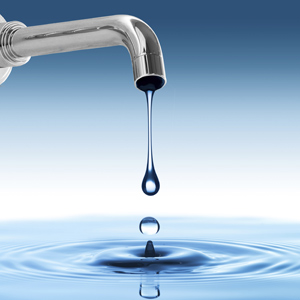Saving water is everyone's responsibility
Water scarcity

National Water Week is observed from 20 to 26 March 2023, and the theme is "Accelerating Change". It also coincides with World Water Day on 22 March, which focus on accelerating change to solve the water and sanitation crisis.
The Western Cape has a rapidly growing population, and the demand for clean, sufficient water grows daily. Water scarcity impacts everyone, and we need everyone to take action. We should always use water sparingly to preserve this vital resource for our survival. Water conservation has become an essential practice in all the province's regions.
Water Conservation in Your Home
Water conservation in your home
The challenge of water scarcity has rapidly increased, and the rise in costs confirms it. The solution to this is to save water. You can do the following in your home to make it more water-efficient.
- Take shorter showers.
- Turn off the shower after soaping up, then turn it back on to rinse.
- Reduce your toilet flush volume.
- Install a system to pump grey water (from the washing machine, basins, shower and bath) to the garden. Doing this will help households to eliminate the need for additional garden watering.
- Be alert of leaking taps and toilets. Find out how you can fix your leaking toilet.
- Do not leave the water running for rinsing when washing dishes by hand,
- If you have a double basin, fill one with soapy water and one with rinse water.
- Use tap aerators to reduce the flow in kitchen taps.
- Do not let the tap run while you clean vegetables.
- Rinse them in a stoppered sink or a pan of clean water.
Water conservation around the house and in the garden
It helps to look at the principles of using water when gardening because gardens are often water-intensive. Here are some tips from " Water-wise gardening" (DWAF and NBI, 1998):
- Group plants with the same watering need together to avoid over-watering some while under-watering others.
- Put a covering layer of mulch around trees and plants. Mulching will slow down moisture evaporation, discourage weed growth and promote moisture retension in the soil.
- Water during the early parts of the day. Early watering and late watering also reduce water loss to evaporation.
- Avoid watering in windy conditions.
- Plant in the right season. In winter rainfall areas, this is in autumn and early winter to allow the plants to develop their root systems before the dry season. In summer rainfall areas, it is spring and early summer for the same reason. In summer rainfall areas, it is spring and early summer for the same reason.
- Deep-soak your lawn.
- Water your lawn long enough for the moisture to soak down to the roots. A light sprinkling can evaporate quickly.
Water conservation for the industrial and commercial sectors
The following tips are from from the Green Toolkit 2013: Green Living 37 (WCG 110% Green):
- Define water requirements for your department, building or unit of production.
- Appoint a person to track water usage and identify strengths and weaknesses.
- Present the idea of water-efficient appliances in canteens or office kitchens. Fill kettles only with as much water as you need.
- Try and avoid ornamental water features and fountains that lose water to evaporation.
- Make people aware of the locations and times for reporting water losses caused by leaking or damaged pipes and hoses.
- Keep paths around the building tidy. Avoid the use of hoses to remove leaves etc.
- Encourage people to wash company vehicles at commercial car washers that recycle water.
- Encourage people to be alert of leaking taps.
- Reduce leaks by turning taps off lightly and getting washers replaced when one discovers leaks.
- Upgrade production equipment to use recycled water or less water.
- Know the location of your master water shut-off valve.
Conclusion
Saving water should come naturally as a response to the challenges arising. Parents should educate children about the simple water-saving methods around the home. Employees and co-workers should be made aware of water scarcity issues and the impact of water conservation practices.
Using water-saving features can reduce your in-home water use and save money too.
Find out more about National Water Week 2023.


